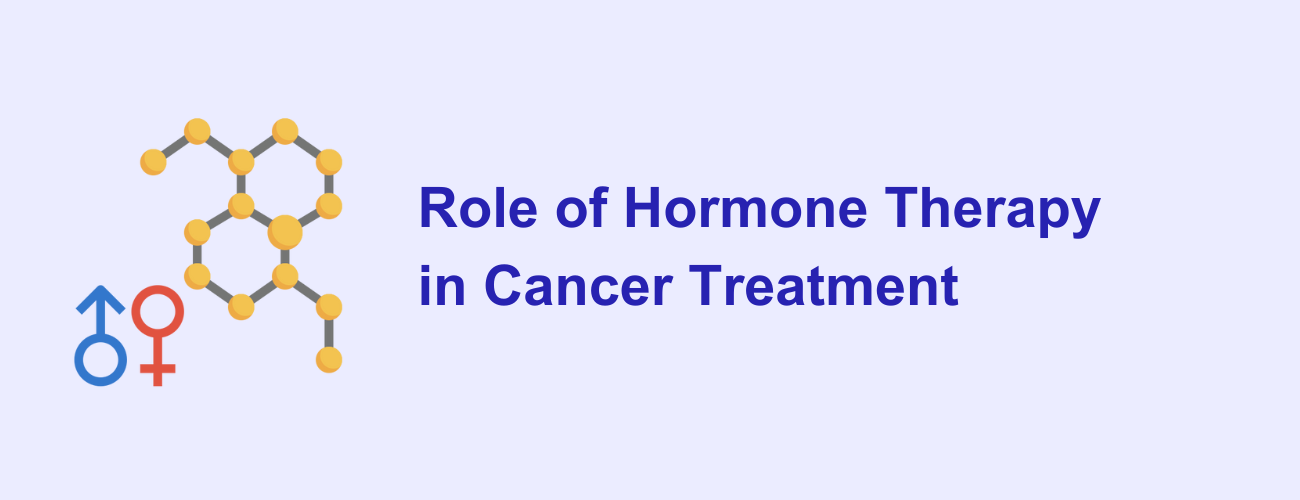

Cancer treatment has evolved significantly over the years, offering patients a range of therapeutic options tailored to their specific needs. Among these, hormone therapy stands out as a vital approach, particularly for certain types of cancers. At Cancer Samiksha, we are dedicated to providing our patients with comprehensive care, including advanced hormone therapy treatments.
What is Hormone Therapy?
Hormone therapy, also known as endocrine therapy, is a cancer treatment that slows or stops the growth of cancers that use hormones to grow. It is most commonly used for breast and prostate cancers but can also be effective for other hormone-sensitive cancers. The therapy works by blocking the body’s ability to produce hormones or by interfering with the effects of hormones on cancer cells.
How Does Hormone Therapy Work?
Hormones are natural substances produced by glands in the body and circulated in the bloodstream. They control the growth and activity of certain cells and organs. Some cancers are fueled by hormones, such as estrogen and testosterone. Hormone therapy aims to:
- Lower Hormone Levels: Medications or surgical procedures can reduce the production of hormones in the body.
- Block Hormone Receptors: Drugs can prevent hormones from binding to receptors on cancer cells, thus inhibiting their growth.
- Interfere with Hormone Action: Treatments can disrupt the signals that hormones send to cancer cells.
Types of Hormone Therapy
There are several types of hormone therapy, each with specific applications and mechanisms:
1. Selective Estrogen Receptor Modulators (SERMs) :
SERMs, such as tamoxifen, bind to estrogen receptors on cells, blocking estrogen’s ability to stimulate cancer growth. They are commonly used in treating hormone receptor-positive breast cancer.
2. Aromatase Inhibitors :
Aromatase inhibitors, including anastrozole, letrozole, and exemestane, reduce the amount of estrogen produced by the body, particularly in postmenopausal women. These drugs are also used to treat hormone receptor-positive breast cancer.
3. Luteinizing Hormone-Releasing Hormone (LHRH) Agonists :
LHRH agonists, such as leuprolide and goserelin, lower the levels of testosterone in men and estrogen in women. These drugs are often used in treating prostate cancer and, in some cases, breast cancer.
4. Anti-Androgens :
Anti-androgens, such as bicalutamide, flutamide, and enzalutamide, block the action of androgens (male hormones) on prostate cancer cells. They are typically used in combination with other treatments for prostate cancer.
5. Ovarian Suppression :
Ovarian suppression, achieved through surgery (oophorectomy) or medication (LHRH agonists), stops the ovaries from producing estrogen. This approach is used in premenopausal women with hormone receptor-positive breast cancer.
Benefits of Hormone Therapy
Hormone therapy offers several advantages in the treatment of hormone-sensitive cancers:
- Targeted Action: By specifically targeting hormone pathways, hormone therapy can effectively slow or stop the growth of hormone-dependent cancer cells.
- Adjunct to Other Treatments: Hormone therapy can be used in combination with surgery, radiation, and chemotherapy to enhance overall treatment effectiveness.
- Prevention of Recurrence: In some cases, hormone therapy can help prevent cancer from returning after the primary treatment.
- Palliative Care: For advanced cancers, hormone therapy can help manage symptoms and improve the quality of life.
Hormone Therapy at Cancer Samiksha
At Cancer Samiksha, we recognize the importance of personalized treatment plans tailored to each patient’s unique needs. Our experienced oncologists are skilled in the latest hormone therapy techniques, ensuring that our patients receive the most effective care possible. We provide a comprehensive range of hormone therapies, supported by a multidisciplinary team of healthcare professionals dedicated to your well-being.
Our holistic approach to cancer care includes psychological counseling, nutritional guidance, and support services to help you navigate your treatment journey with confidence and strength.
In short, hormone therapy plays a crucial role in the treatment of certain types of cancer, offering targeted and effective options for patients. At Cancer Samiksha, we are committed to utilizing the latest advancements in hormone therapy to provide our patients with the best possible outcomes. If you or a loved one is facing a cancer diagnosis, we invite you to explore the hormone therapy options available at our center. Together, we can work towards a brighter, healthier future.
Contact Us Today
For more information about hormone therapy and how it can benefit you, please contact Cancer Samiksha at 8888233233 . Our dedicated team is here to support you every step of the way.
